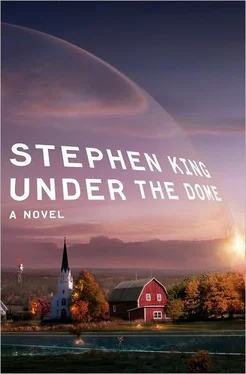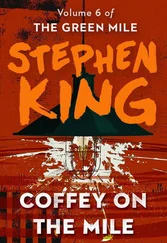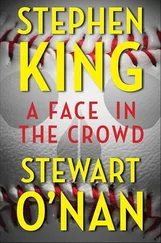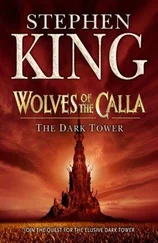“We also put some pretty good change in our own pockets,” Andy said timidly.
This was true. They had done more than prop up their own businesses and extend a helping hand to the little brown brothers; Andy had his own account in the Cayman Islands. And for every dollar Andy had—or the Bowies, for that matter—he was willing to bet that Big Jim had put away three. Maybe even four.
“‘The workman is worthy of his hire,’” Big Jim said in a pedantic but kindly tone. “Matthew ten-ten.” He neglected to cite the previous verse: Provide neither gold, nor silver, nor brass in your purses.
He looked at his watch. “Speaking of work, pal, we better get moving. Got a lot to decide.” He started walking. Andy followed, not taking his eyes off the sunset, which was still bright enough to make him think of infected flesh. Then Big Jim stopped again.
“Anyway, you heard Stewart—we’re shut down out there. ‘All done and buttoned up,’ as the little boy said after he made his first wee. He told the Chef himself.”
“ That guy,” Andy said dourly.
Big Jim chuckled. “Don’t you worry about Phil. We’re shut down and we’re going to stay shut down until the crisis is over. In fact, this might be a sign that we’re supposed to close up shop forever. A sign from the Almighty.”
“That would be good,” Andy said. But he had a depressing insight: if the Dome disappeared, Big Jim would change his mind, and when he did, Andy would go along. Stewart Bowie and his brother Fernald would, too. Eagerly. Partly because the money was so unbelievable—not to mention tax-free—and partly because they were in too deep. He remembered something some long-ago movie star had said: “By the time I discovered I didn’t like acting, I was too rich to quit.”
“Don’t worry so much,” Big Jim said. “We’ll start moving the propane back into town in a couple of weeks, whether this Dome situation resolves itself or not. We’ll use the town sand-trucks. You can drive a standard shift, can’t you?”
“Yes,” Andy said glumly.
“And”—Big Jim brightened as an idea struck him—“we can use Stewie’s hearse! Then we can move some of the canisters even sooner!”
Andy said nothing. He hated the idea that they had appropriated (that was Big Jim’s word for it) so much propane from various town sources, but it had seemed the safest way. They were manufacturing on a large scale, and that meant a lot of cooking and a lot of venting the bad gasses. Big Jim had pointed out that buying propane in large amounts could raise questions. Just as buying large amounts of the various over-the-counter drugs that went into the crap might be noticed and cause trouble.
Owning a drugstore had helped with that, although the size of his orders for stuff like Robitussin and Sudafed had made Andy horribly nervous. He’d thought that would be their downfall, if their downfall came. He had never considered the huge cache of propane tanks behind the WCIK studio building until now.
“By the way, we’ll have plenty of electricity in the Town Hall tonight.” Big Jim spoke with the air of one springing a pleasant surprise. “I had Randolph send my boy and his friend Frankie over to the hospital to grab one of their tanks for our gennie.”
Andy looked alarmed. “But we already took—”
“I know,” Rennie said soothingly. “I know we did. Don’t you worry about Cathy Russell, they’ve got enough for the time being.”
“You could have gotten one from the radio station… there’s so much out there…”
“This was closer,” Big Jim said. “And safer. Pete Randolph’s our guy, but that doesn’t mean I want him to know about our little business. Now or ever.”
This made Andy even more certain that Big Jim didn’t really want to give up the factory.
“Jim, if we start sneaking LP back into town, where will we say it was? Are we going to tell folks the Gas Fairy took it, then changed his mind and gave it back?”
Rennie frowned. “Do you think this is funny, pal?”
“No! I think it’s scary !”
“I’ve got a plan. We’ll announce a town fuel supply depot, and ration propane from it as needed. Heating oil too, if we can figure out how to use it with the power out. I hate the idea of rationing—it’s un-American to the core—but this is like the story of the grasshopper and the ant, you know. There are cotton-pickers in town who’d use up everything in a month, then yell at us to take care of em at the first sign of a cold snap!”
“You don’t really think this will go on for a month, do you?”
“Of course not, but you know what the oldtimers say: hope for the best, prepare for the worst.”
Andy thought of pointing out that they’d already used a fair amount of the town’s supplies to make crystal meth, but he knew what Big Jim would say: How could we possibly have known?
They couldn’t have, of course. Who in their right mind would ever have expected this sudden contraction of all resources? You planned for more than enough. It was the American way. Not nearly enough was an insult to the mind and the spirit.
Andy said, “You’re not the only one who won’t like the idea of rationing.”
“That’s why we have a police force. I know we all mourn Howie Perkins’s passing, but he’s with Jesus now and we’ve got Pete Randolph. Who’s going to be better for the town in this situation. Because he listens. ” He pointed a finger at Andy. “The people in a town like this—people everywhere, really—aren’t much more than children when it comes to their own self-interest. How many times have I said that?”
“Lots,” Andy said, and sighed.
“And what do you have to make children do?”
“Eat their vegetables if they want their dessert.”
“Yes! And sometimes that means cracking the whip.”
“That reminds me of something else,” Andy said. “I was talking to Sammy Bushey out at Dinsmore’s field—one of Dodee’s friends? She said some of the cops were pretty rough out there. Darn rough. We might want to talk to Chief Randolph about that.”
Jim frowned at him. “What did you expect, pal? Kid gloves? There was darn near a riot out there. We almost had a cotton-picking riot right here in Chester’s Mill !”
“I know, you’re right, it’s just that—”
“I know the Bushey girl. Knew her whole family. Drug users, car thieves, scofflaws, loan-dodgers and tax-dodgers. What we used to call poor white trash, before it became politically incorrect. Those are the people we have to watch out for right now. The very people. They’re the ones who’ll tear this town apart, given half a chance. Is that what you want?”
“No, course not—”
But Big Jim was in full flight. “Every town has its ants—which is good—and its grasshoppers, which aren’t so good but we can live with them because we understand them and can make them do what’s in their own best interests, even if we have to squeeze em a little. But every town also has its locusts, just like in the Bible, and that’s what people like the Busheys are. On them we’ve got to bring the hammer down. You might not like it and I might not like it, but personal freedom’s going to have to take a hike until this is over. And we’ll sacrifice, too. Aren’t we going to shut down our little business?”
Andy didn’t want to point out that they really had no choice, since they had no way of shipping the stuff out of town anyway, but settled for a simple yes. He didn’t want to discuss things any further, and he dreaded the upcoming meeting, which might drag on until midnight. All he wanted was to go home to his empty house and have a stiff drink and then lie down and think about Claudie and cry himself to sleep.
Читать дальше











